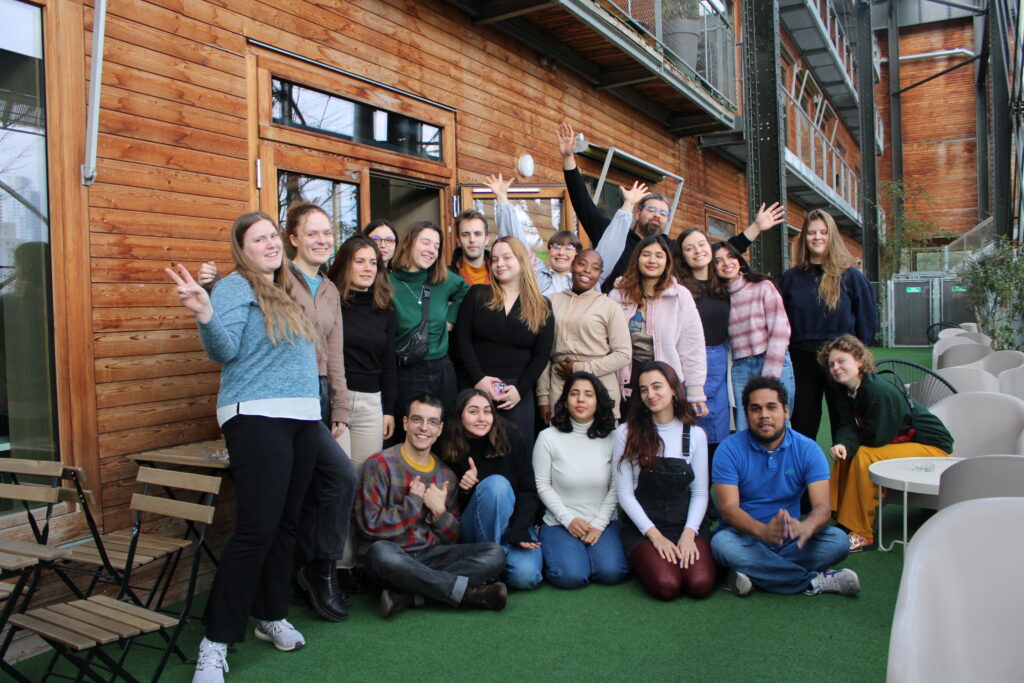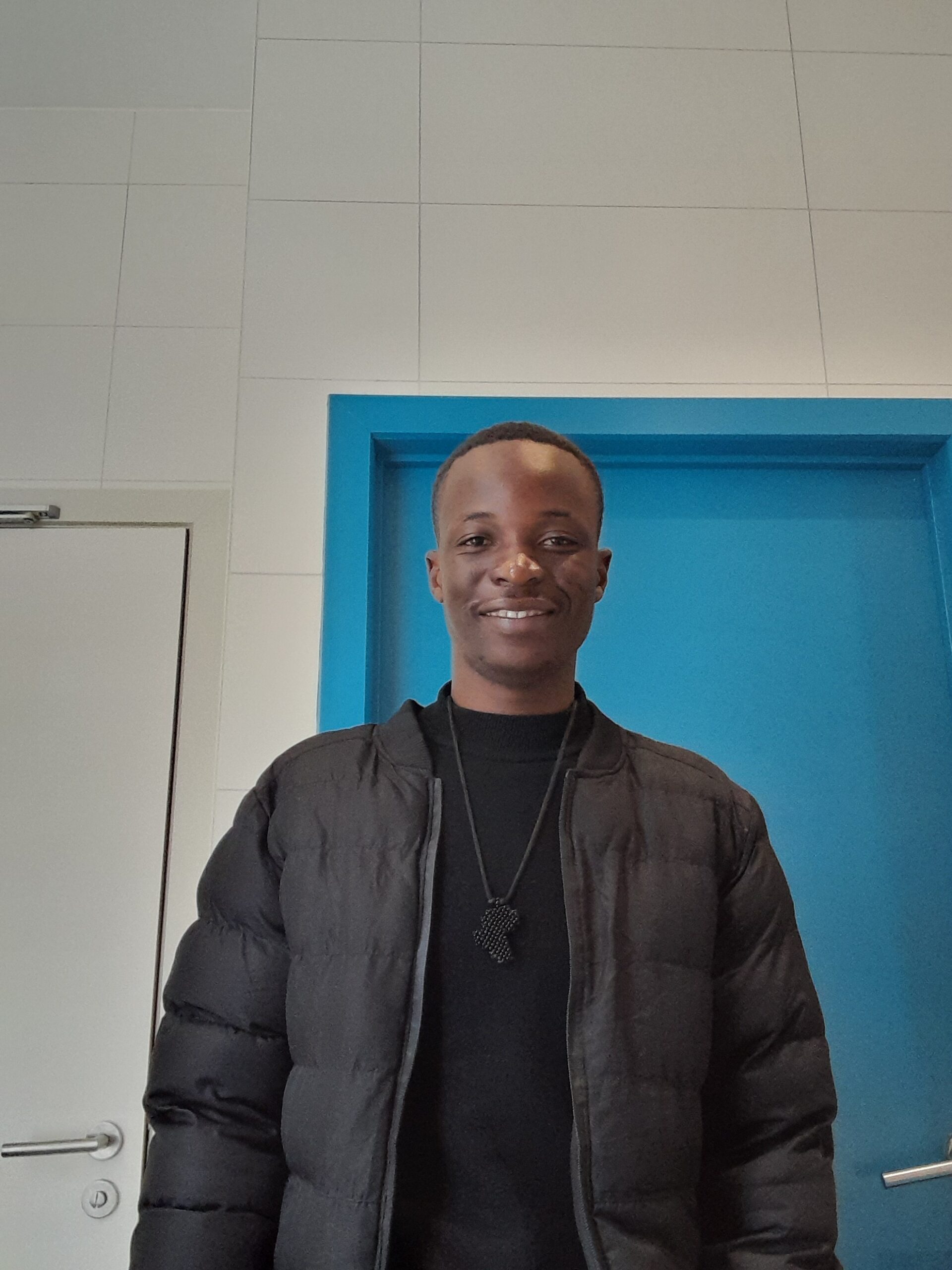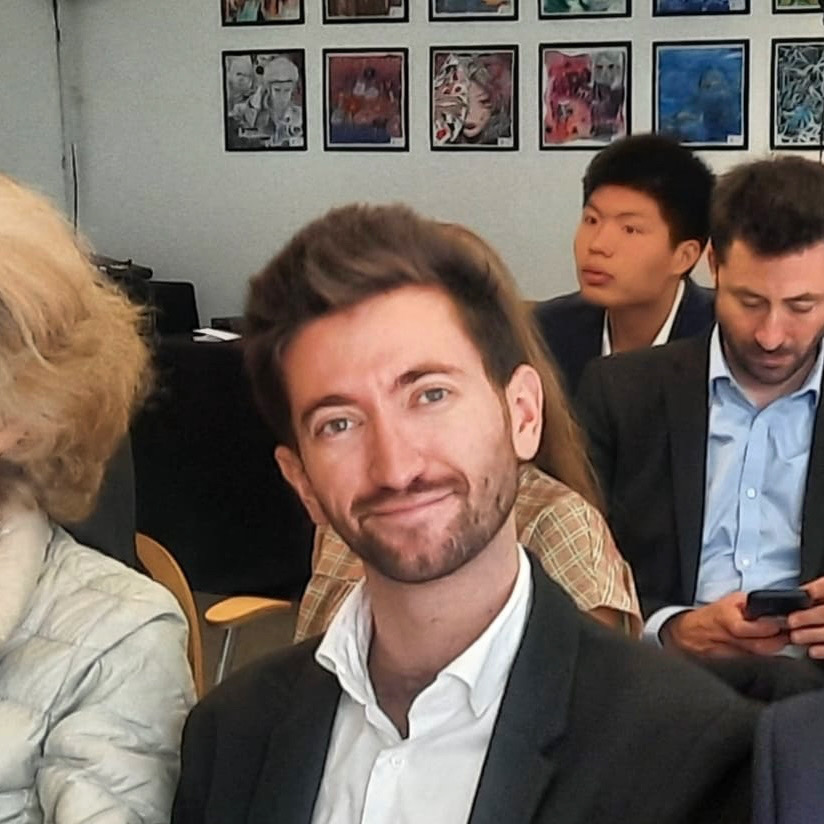
Teams
Youth Advocacy team

Raising our voice for decolonising international volunteering
This international team of 20 youth advocates will contribute with their work to decolonising IVS by deconstructing existing values, practices, and structures to generate change. They will engage with IVS organisations, volunteers and policymakers and work with them to deconstruct existing narratives in practices in IVS, understand and challenge the distribution of economic resources, question and transform the negative impacts of IVS practices on the climate and address visa mobility barriers to make IVS easier to access.

Youth Advocacy team – the interview with Ian Tawanda Mugowa
Hello! I am Ian Tawanda Mugowa, a holder of Bachelor of Arts Honors Degree in Archaeology, Museums and Heritage Studies. I am a volunteer member for Zimbabwe Workcamps Association (ZWA), from Zimbabwe. Simultaneously, I am also a CCIVS Youth Committee member. As a highly motivated and passionate volunteer, I strongly believe in peace, global solidarity, social justice and cultural exchange as the main pillars to build a sustainable world.
Do you know what Volunteering is?
It is a voluntary act of an individual or group freely giving their time and labor to contribute to community work. Through this engagement, volunteers can explore, experiment, learn and develop ways of thinking to a broader perspective. Volunteering can be local, regional and international, however there are some challenges faced by volunteers and voluntary organizations in their exchange programs, mainly between the Global South and the Global North. Among these challenges, the two major ones are Visa and Funding issues. The roots of these challenges can be traced back to colonial times, and the colonial effects are still present in our mind set and operational systems.
Oooh yes! We can help each other to know “How colonial legacy affects International Voluntary Service (IVS)”
Colonialism and the associated racism, has a negative impact on international volunteering as well, as it is still present in the visa issues with volunteers from countries in the Global South facing many more visa restrictions and unfair higher visa fees than those volunteers from nations in the Global North. These higher barriers impacts youth mobility and the smooth exchange of voluntary programs around the globe. Secondly, funding issues – many projects are funded by countries in the Global North, e.g. the European Commission, and for a fact that’s where the money is! In many cases they are only for European citizens however some of the project concern the whole world. This affects IVS in its effort to address global issues such as climate justice, peace, global solidarity, and social justice among others, as it seeks to be inclusive regardless of geographical location or race. Therefore, some of the projects will end up excluding the global south.
To make a change, we have to Decolonize!
It’s the time to deconstruct and reconstructs our systems and mind sets, create a sustainable world with tolerance, inclusiveness, equality and to ensure global solidarity.
Let’s get everyone who is excluded, on board! And advocate for Decolonization?
Power is in Me, You, Them and Us! And our goal is to strengthen equality, diversity, accessibility and ooperation in IVS by addressing neo-colonial mechanisms and mindsets:
– In Funding
– In youth mobility
Join us and become part of the movement to decolonize IVS!

Finally….we are ready to present the Decolonise! policy papers. While doing our activities many debates arose and gave us input for the policy papers we finally developed. As we go along, we might need to adapt and change them but what we have here is the result of a 2-year long process with young changemakers involved in the Decolonise! advocacy team. One of them is Thomas Aubineau, a French volunteer who is doing his Service Civique with Fundación SES, an NGO based in Buenos Aires, Argentina, and partner of the Decolonise IVS! project. His contribution has been extremely useful as he was coordinating the drafting of the policy papers. He is also actively involved in developing the Decolonise advocacy strategy.
Thomas, what are these policy papers about?
We are working on two main topics: on the one hand the neo-colonial mechanisms that persist in the fundings of the European Union, in particular in the program of Erasmus+ and the European Solidarity Corps, and on the other hand the visa processes and the neo-colonial barriers that these procedures keep maintaining. Last but not least, we are also writing a position paper, this one on the narratives we use within our organisations. This paper is a bit different than the two previous ones, as it is specially directed for our movement, and not for external actors (even though its recommendations can also apply to other stake-holders and to their communication). The aim of these 3 papers is to tackle the neo-colonial patterns that keep existing in international volunteering service, and which limit volunteering as a form of promoting social justice and the emancipation for both the volunteer and the host community.
Why did you choose these topics in particular?
The choice of these topics is the result of a consultation with all project partners, and an analysis of the main challenges to volunteering today.
Funds are one of the biggest determinants when it comes to a volunteering project, since they have an influence on literally every dimension of the project: the purpose of the mission, its duration, its budget, the type of volunteers who can take part, as well as its evaluation and the way in which it is to be disseminated. It was therefore only natural to analyse the neo-colonial elements that persist in such fundings, particularly in the Erasmus+ and European Solidarity Corps funds which are aimed directly at young people and volunteer organisations.
Visa processes were a little less obvious. It is not the most talked-about topic when it comes to the decolonisation of volunteering, but it is the first challenge volunteers and their sending organisations encounter when starting a volunteering project. This is one of the first administrative tasks to be carried out by the volunteer prior to mobility, and the one that depends most on the volunteer’s origin, since it is associated with the migration procedure and all the security issues that are often related to this process. The fact that in a majority of countries the experience of volunteering is not yet differentiated in migration policy from other forms of mobility means that migration inequalities are also reflected in the granting of visas to volunteers. It was therefore essential to address this issue and analyse how this process reproduces a certain neo-coloniality in the experience of volunteering.
Regarding the third paper, we thought it is also important to decolonise ourselves before expecting others to do it. Much of the coloniality still present in volunteering is reproduced by our organisations and the way we communicate about our projects. It is particularly important to carry out this work internally before waiting for changes from external players, or at least to do it in parallel. The idea behind this paper is not to rehash a feeling of guilt or, conversely, of innocence in the face of these power relations, but to be more aware of the domination that our organisations can exert over the communities we claim to defend, in order to create all the conditions to propose fair and egalitarian volunteering.
How was the process behind their writings?
The process was a collaborative work between our organisations, volunteers participating in the project and external partners. Everyone brought a bit of their experience, and this is was made the process interesting and rewarding. The writings of the papers took several months, and started by doing interviews with volunteers, members of the partner organisations of the project, and external actors as well. The idea was to gather points of view on both topics, from different perspectives and parts of the world. In parallel, we did a lot of research, analysed academic texts and primary sources, to argument our recommendations. We finally divided up the work of writing the papers and designing the graphics.
What are the future steps of your strategy?
Now that we finished the policy and position papers, we are in a process of disseminating our work and of advocating our demands. We want to reach as many stakeholders as possible who have an impact on these issues, not just in Europe, but also in Africa, Asia and Latin America. To achieve this, we are working with our entire network and project partners, encouraging volunteers who have been involved in Decolonise IVS! activities to take an active part in this advocacy, to take profit of their experience and perspective. Our aim is to build long-term relationships with the decision-makers we plan to meet, so that we can work together on these issues and monitor the progress of the decolonisation of volunteering.
Decolonising EU Funding Mechanisms for Youth Policy Paper
Decolonising Visa Mechanisms Policy Paper
